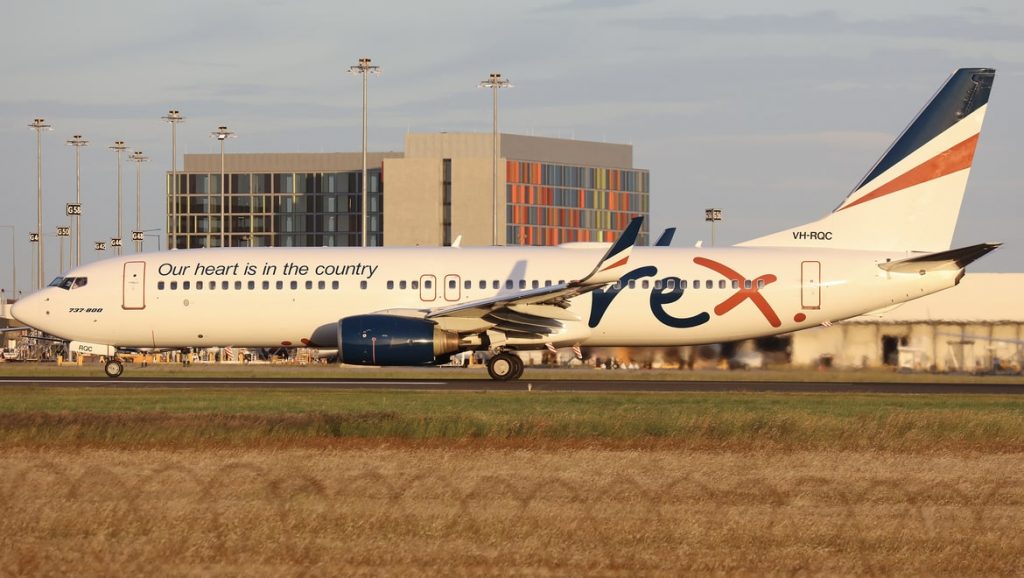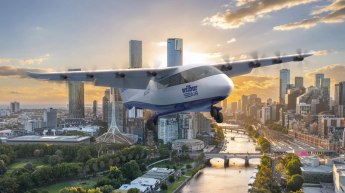
Rex Airlines has announced that fares across its regional and domestic network will be going up by at least $10 within days in light of “spiralling fuel costs” and other “inflationary pressures”.
The carrier revealed that from Friday, 25 March, all fares will be increased by at least $10, with larger increases to be imposed on current sale fares.
The move has been made “in response to the steep increases in operational costs due to spiralling fuel costs and overall strong inflationary pressures”, Rex said in a statement.
Rex general manager of network strategy Warrick Lodge said this marks the first time in over three years that Rex has decided to increase airfares.
“With fuel prices shooting up by over 30 per cent in recent weeks and with supply chains being severely disrupted, the existing ticket prices are no longer tenable,” Lodge said.
Even with the increase, Lodge said Rex’s airfares remain competitive, with fares between Sydney-Melbourne starting from $109, and its business class offering starting at $299.
“Rex is proud of being a disruptor on the domestic market, bringing record low average fares to consumers for travel on the golden triangle,” Lodge said.
Lodge noted that Rex is still intending to increase its Boeing 737 fleet, after chairman Lim Kim Hai revealed earlier this year that Rex would dramatically increase the fleet from six to 30 aircraft in the coming years.
Chairman Lim said at the time that the airline could achieve this by taking delivery of one new plane every two to three months.
Lodge also noted that alongside Rex’s fleet expansion plans, the airline is also seeking to expand its network of Australian destinations in the near future.
“We will be bringing in additional aircraft shortly and more major cities in Australia will be able to benefit from Rex’s reliable and affordable air travel,” he said.
“We invite cities who wish to be in on the good deal to contact us immediately.”
Earlier this month, Qantas CEO Alan Joyce revealed that Qantas fares will also soon increase by at least 7 per cent initially to account for increasing oil costs, however, could see further price hikes in the future.
Speaking at the Australian Financial Review Business Summit, Joyce said that the airline has hedged around 90 per cent of the fuel it needs through to the end of June, and 50 per cent of its requirements for the September quarter.
“(Hedging) gives us time to react to that higher fuel price,” he said. “Unfortunately, if we stay at these levels, airfares are going to have to go up, we’re going to have to pass them on.”
At the then-current cost for jet fuel, of around US$120 a barrel (AU$164), the pass-on cost is 7 per cent.
“It’s not massive but it will have an impact on some levels of travel out there. If it moves further, for every US$4 on the barrel, it’s another per cent that airfares have to improve by,” Joyce said.
He pointed out that motorists had it much tougher, with petrol prices up 30 per cent in response to the high cost of oil.
Meanwhile, Flight Centre managing director Graham Turner warned that passengers could soon face a 10-15 per cent jump in airfares, should oil prices touch US$200 a barrel.
“My guess is with airline capacity increasing, we should get back to pre-COVID international airfares over the next six months, but the cost of fuel could put 10-15 per cent on an airfare,” he said.
Last month, Rex announced that its passenger numbers leapt 82 per cent for the six months to December 2021 – despite Delta and Omicron lockdowns.
The news is a result of the airline flying capital city routes with its new fleet of 737-800s and came as the business announced a $53 million loss before tax for the same period.
It comes after Rex first announced in May 2020 that it was gearing up to rival Qantas and Virgin to take on domestic routes between capital cities and started operating its first 737s in March 2021.
Then Rex revealed late last year that it intends to expand its 737 fleet from six to 14, to support its growing domestic operations.
Lim announced the dramatic increase in fleet expansion goals last month, stating, “That’s a very good medium-term objective.
“There’s a lot to be said for economies of scale.”
















Ashley
says:Why?
Because Rex doesn’t have the capability to ‘fuel hedge’.
Having to pay for fuel at current rates constantly, will put a dent in Rex’s ability to outlay funds for leases’ on more 2nd-hand Boeing’s into the future.
Sharp’s ‘grand plans’ may come to naught.
Meepa
says:Whoops…. wont be the end of the airline, but they better be offering something better than the rest for the jump in cost.
Lindsay
says:The only thing which will be in ‘offering something better’ will be Sharp constantly whinging about Rex’s increased fuel costs.